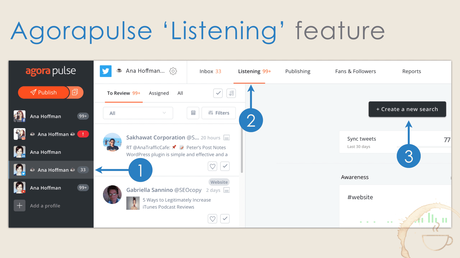

- FREE ALTERNATIVE TO TWEETADDER VERIFICATION
- FREE ALTERNATIVE TO TWEETADDER OFFLINE
- FREE ALTERNATIVE TO TWEETADDER FREE
In the final days of the 2020 election, Parler’s popularity exploded. Overall, the site appears like an amalgamation of some of the most odious factions of social media, centralized on one platform that’s attracted millions of users. With just a few clicks, it’s easy to find even more extreme right-wing voices and hate speech.
FREE ALTERNATIVE TO TWEETADDER FREE
Open the app, and there are profiles pushing doubt about the 2020 election’s results and declarations that the mainstream tech platforms are targeting free speech. Right-wing influencers - from Ivanka Trump to the governor of Nebraska - have encouraged those frustrated with alleged Big Tech censorship to join them on Parler.Īt first glance, Parler does look a lot like Twitter and Facebook. Parler, an app and website that promises free speech online, has been around since 2018. You may have heard more about Parler in the runup to the 2020 election when conservatives touted it as an alternative to Twitter and Facebook. Even in a world where Parler doesn’t exist, new platforms could still be built as an alternative to Twitter and Facebook.

Still, the site’s few years of activity have made clear how mainstream social networks’ use of moderation has led to backlash. It’s not yet clear how long it will take Parler to come back online, or if it even can.

“That means the information diet that they’re consuming is completely homogenous.” Morgan added that this can make the users of these platforms more prone to radicalization. “These are unmoderated kind of closed spaces where only people with fringe and extremist ideologies spend their time,” Jonathon Morgan, the CEO of Yonder, an AI firm that tracks misinformation, said of platforms like Parler and 4chan, a message board known for hate speech. This process could inevitably bolster the spread of misinformation, hate speech, and violence. While mainstream platforms have become more stringent about their moderation in recent days, some claim that stricter rules ultimately push users to darker corners of the internet. In the aftermath of Twitter permanently banning Trump, and Facebook suspending his account until at least the end of his presidency, some thought Trump and his followers might turn to Parler. Parler’s shutdown comes as attention turns toward fringe platforms, and at a time when social networks are under increasing scrutiny for the role they play in encouraging off-platform violence. Now that data, which reportedly includes location data, is being used to understand what happened on Wednesday and who was involved. At least one researcher claims to have been archiving all the posts on Parler since January 6.
FREE ALTERNATIVE TO TWEETADDER OFFLINE
“It’s clear that Parler does not have an effective process to comply with the AWS terms of service.”īefore the platform went offline, the company’s CEO, John Matze, posted that he expected Parler could be offline for up to a week, noting that his company may need to “rebuild from scratch.” But Parler being gone - at least for the time being - doesn’t mean that the posts and data of its millions of users are. “Recently, we’ve seen a steady increase in this violent content on your website, all of which violates our terms,” Amazon told Parler, according to emails obtained by BuzzFeed News.
FREE ALTERNATIVE TO TWEETADDER VERIFICATION
The security verification service Okta also terminated Parler’s access to a free trial of its software. This followed Parler’s app being removed from the Google Play Store and Apple App Stores for its role in inciting violence. On Sunday, Amazon booted Parler from its Amazon Web Services, citing the risk to public safety. Tech giants effectively took the largely conservative and largely unmoderated social network offline as evidence mounts that Parler was involved in the planning of the insurrection, and was still being used to encourage violence in the days following the pro-Trump “Save America” rally. Parler has been booted from the internet, after its users cheered on and celebrated the storming of the Capitol on January 6.


 0 kommentar(er)
0 kommentar(er)
